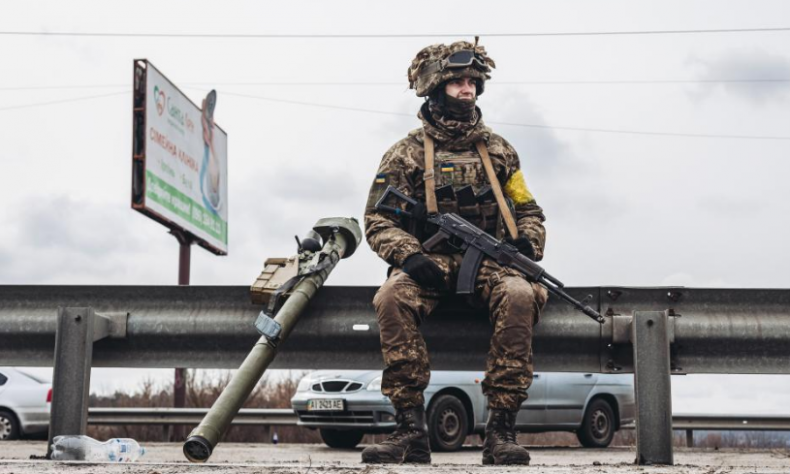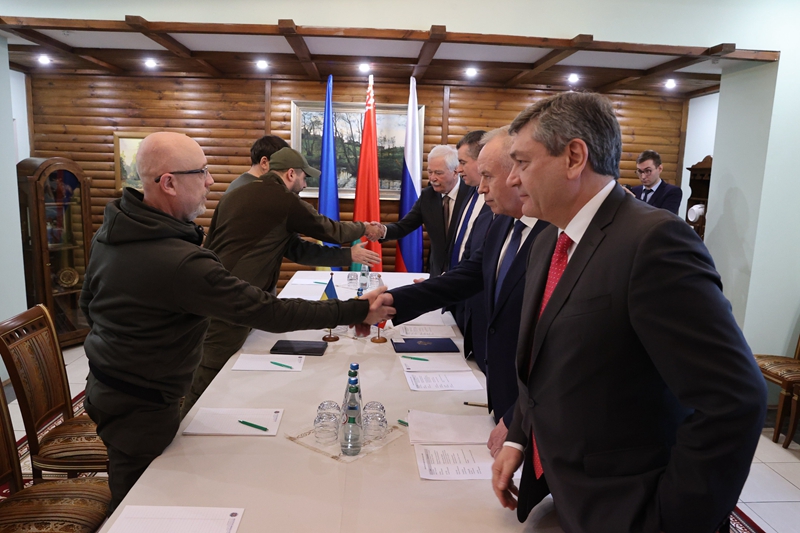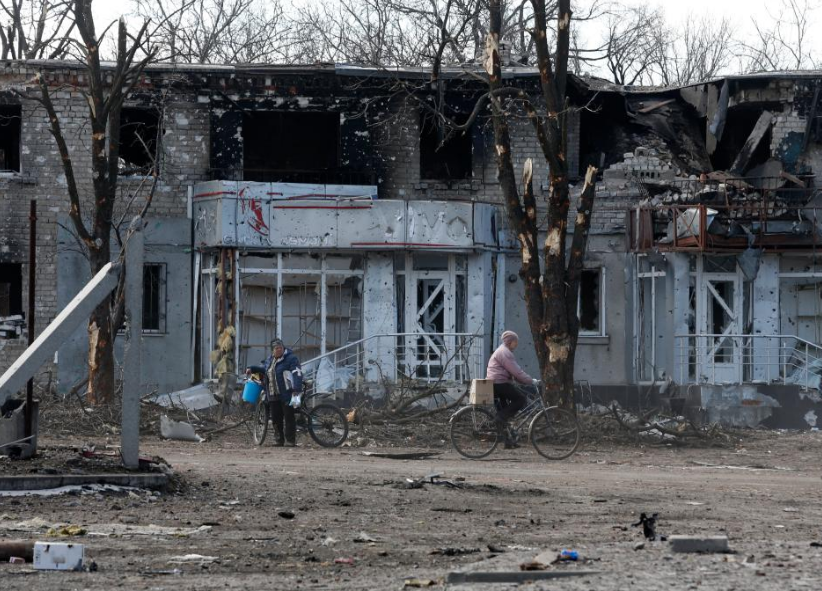New Era, New Thinking

The struggle today is neither between different ideologies nor civilizations, but between the old and the new. It’s the struggle between the vanguard and the rearguard.
While we can point to many causes of the conflict between Russia and Ukraine, while there are dirty hands all around, including many in Europe and the United States, perhaps what is most stunning about these developments is how extraordinarily familiar they are. Yes, we should be horrified by bombs falling at night, terrified mothers on the run with their children and above all those who fall, but haven’t we seen this again and again, and recently, in conflicts in other places?
Strangely, it does feel new, nonetheless. Perhaps this is because the West is particularly horrified by a war that’s much closer to home, or because those dying have “blonde hair and blue eyes,” as one Western newscaster racialized it, and as commentators in the Global South have pointed out, didn’t the U.S. do much worse in Iraq and Afghanistan, and didn’t much of Europe either directly support or abide those catastrophic abuses, and then cry about the women and children they abandoned last year? Indeed, has war not been a constant since the September 11 terrorist attacks in 2001, and even before?
Yet there is something new this time around. Despite what seems to be a repetition of history, it’s clear we have entered a “new era,” in the words of Chinese President Xi Jinping. This has been signaled for more than a decade given swift changes in the world order, including the rise of the East. It also includes the growing global understanding that climate change is an existential threat requiring immediate and close cooperation. But if one managed to avoid being touched by those first two points, the global pandemic came along and touched everyone—an event that will long be remembered as a point of rupture, dividing one period of history from the next. So who can deny a new era now?

Reflections
Considering how the war in Ukraine further signals a new era, a recent article published by Reuters described it as proving the “end of the ‘end of history’,” recalling the thesis popularized by U.S. scholar Francis Fukuyama in the wake of the Soviet collapse. Fukuyama’s idea was that the end of the Cold War had proven once and for all that Western liberalism, in both its political and economic forms, was the conclusion of history’s big question: What’s the best way for us to manage our societies, at both the national and global levels?
In fact, long before the Ukraine crisis, Fukuyama’s thesis was already chao lengfan, or “reheated cold rice”—and it’s appropriate to use the Chinese idiom here because nothing has done more to discredit the end of history than China’s rise and commitment to a different political and economic model while, simultaneously, many in the West, especially the U.S., have experienced major reversals in fortune.
This “one side up, one side down” is what has sparked in large measure America’s Cold War regressions, its trade war against China, its demonization of the latter’s political system and technology, and so on, during the current and previous presidential administrations. How else to explain efforts aimed at economic decoupling, creating new alliances against China, even proliferating nuclear weapons, and less dangerous but symbolically telling—a diplomatic boycott of the Beijing 2022 Winter Olympics?
This explains in part why some are circling back to a thesis popularized by Fukuyama’s former professor at Harvard University, Samuel P. Huntington—the “clash of civilizations.” Also writing in the wake of the Soviet collapse, Huntington predicted the “inevitability of instability,” and argued that the West needed to avoid its universalist approaches to global affairs because these would never be reconcilable given profound cultural differences between many civilizations around the world. In his signature book The Clash of Civilizations, published in 1996, he made the following and now oft-quoted observation: “In the emerging world of ethnic conflict and civilizational clash, Western belief in the universality of Western culture suffers three problems: It is false; it is immoral; and it is dangerous.”
On these points Huntington deserves high praise. The problem with his thesis, however, is that it normalizes conflict based on civilizational differences. To be sure, there are differences between the West, China, Africa, the Islamic world and so on, and these often produce friction. However, it’s hard to argue that the conflict between Russia and Ukraine is based on civilizational differences. Rather, it largely links to the fact that the West did not change its thinking after the Cold War, but continued to press NATO forward, onto Russia’s borders.

Shifting realities
It’s also hard to argue that growing China-U.S. tensions are similarly rooted in cultural differences. Instead, what can be observed is that what both share in many respects far outpaces what differentiates them. Both are advanced technological societies; both are major powers. They are the top two economies in the world, and their influences on each other and everyone else, past and present, are difficult to overestimate.
It’s also true that the two countries, like everyone else, are subject to similar concerns for security, green development and wellbeing. Thus, we reach another concern with Huntington: While he calls for something like increased tolerance and respect, he also argues we should reinvigorate and reinforce our diverse cultural values and, in spite of these, learn to live with each other. But is this possible, and does it correspond with the changes we’re seeing worldwide?
So what’s at the root of today’s conflicts? This moment of shifting geopolitical realities could create an opening for score settling or, simply put, difficult realignments reflecting changing power dynamics. Or perhaps we are in a period of crises—not just in the wake of the COVID-19 outbreak but already seeing strategic repositioning due to the global failure to adequately respond to climate change and other problems. But it also seems reasonable to argue that these clashes are being driven substantially by old thinking—call it zero-sum, call it Cold War redux, call it the Thucydides trap or whatever—still desperately trying to cling to the old while resisting the new.
In other words, the struggle today is neither between different ideologies nor civilizations, but between the old and the new. It’s the struggle between the vanguard and the rearguard. Whatever difficulties we must endure during this time of struggle, history teaches one clear lesson: The new always wins in the end. The sooner we realize this, the sooner we clear out the old ways of thinking and adapt to not only our changed conditions but the necessity of changing our thinking for survival, the sooner we’ll acknowledge our shared destiny in the new era and move forward together.
Josef Gregory Mahoney is a professor of politics and international relations at East China Normal University and a senior research fellow with the Institute for the Development of Socialism With Chinese Characteristics at Southeast University.
 Facebook
Facebook
 Twitter
Twitter
 Linkedin
Linkedin
 Google +
Google +










